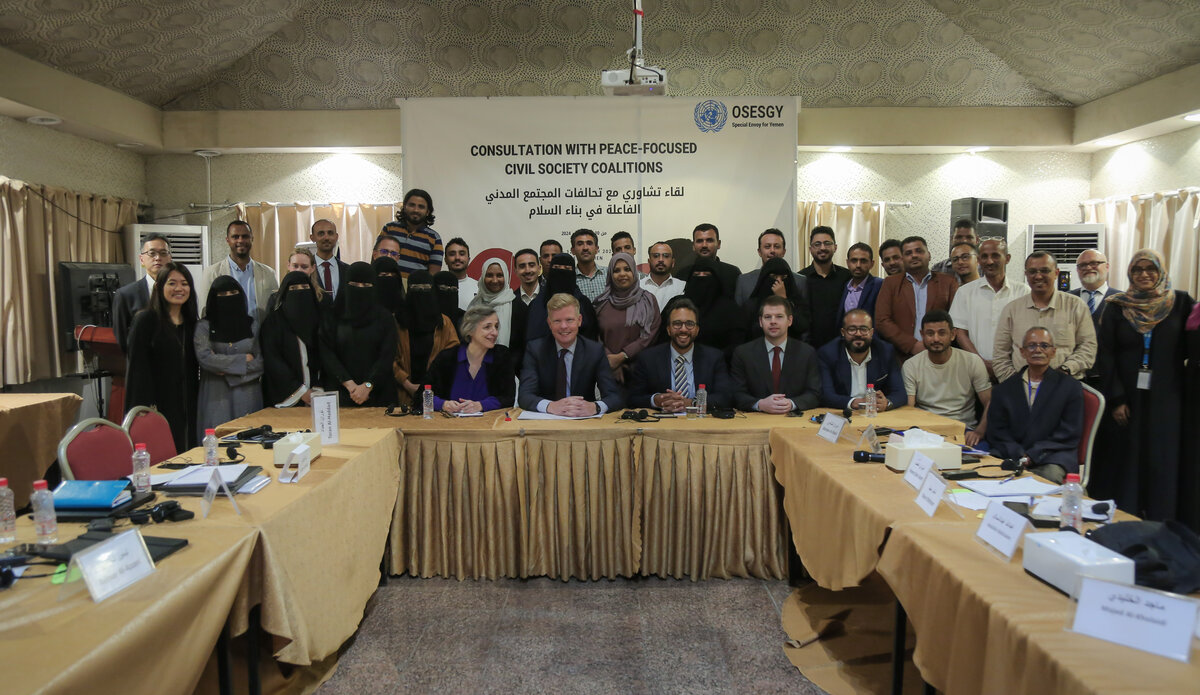Engaging peacebuilding civil society coalitions in Yemen
A total of 30 civil society activists from across Yemen came together in Aden for discussions centered around the UN-led peace process and linkages to Yemeni peacebuilding efforts on the ground. The participants represented two peace-focused civil society coalitions, the Civil Alliance for Peace and the Youth Support Group, which include dozens of member organizations and networks based in ten governorates across Yemen. The three-day consultative meeting was organized by the Office of the UN Special Envoy for Yemen (OSESGY) between February 10-12, 2024.
“I look around and see many new faces who have traveled a long way from Shabwa, Hadhramaut, Marib, Mahra, and Socotra to be here and participate. I am pleased to have had the opportunity to meet our colleagues from Aden here. I am also pleased that UN consultations are broadening their scope and making a genuine effort to reach voices that have not been heard before,” said a woman civil society leader from Shabwa during the meeting.
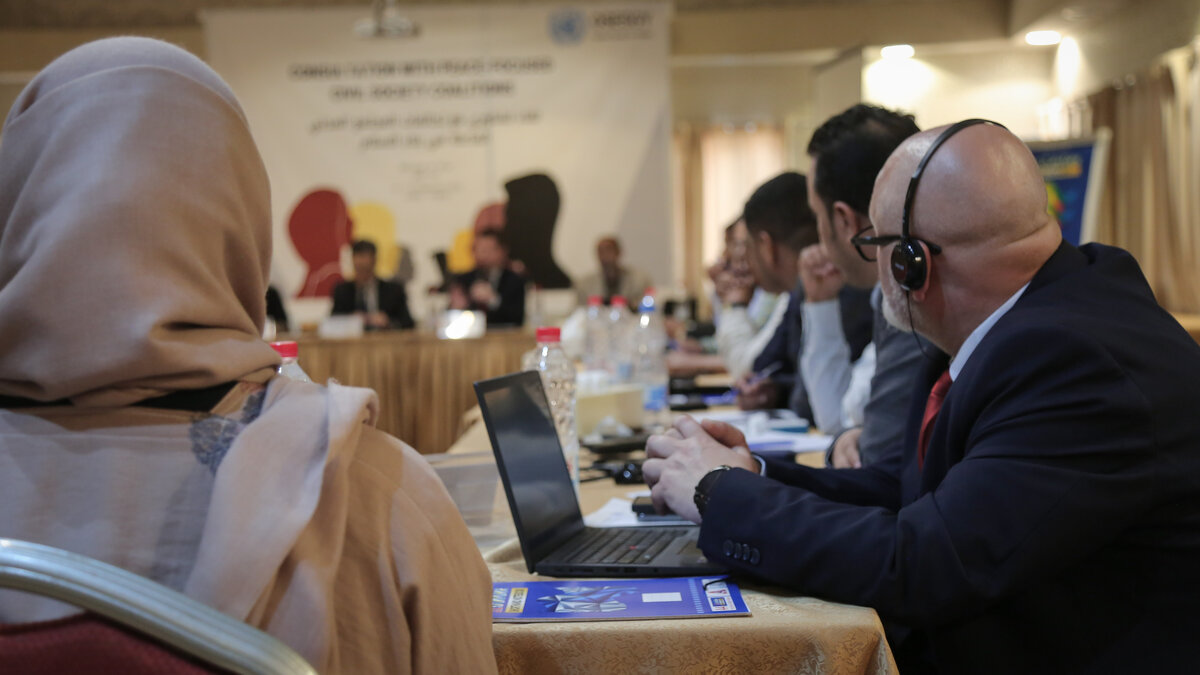
This comes as part of OSESGY’s efforts to scale up engagements with Yemenis both at the national and the community levels and to expand outreach to include a wider range of actors. In recent months, this has included consultative meetings with women, youth, private sector representatives, civil society organizations, experts, and local mediators.
"Civil society has a critical role in supporting the peace process, and in representing the Yemeni people. Your role is not only to inspire our work but also to inspire hope among the over 30 million Yemenis we all serve,” Hans Grundberg, the UN Special Envoy for Yemen told the participants, “We draw inspiration from the local peacebuilding structures, networks and alliances that seek to bring peace to their constituents and communities.”
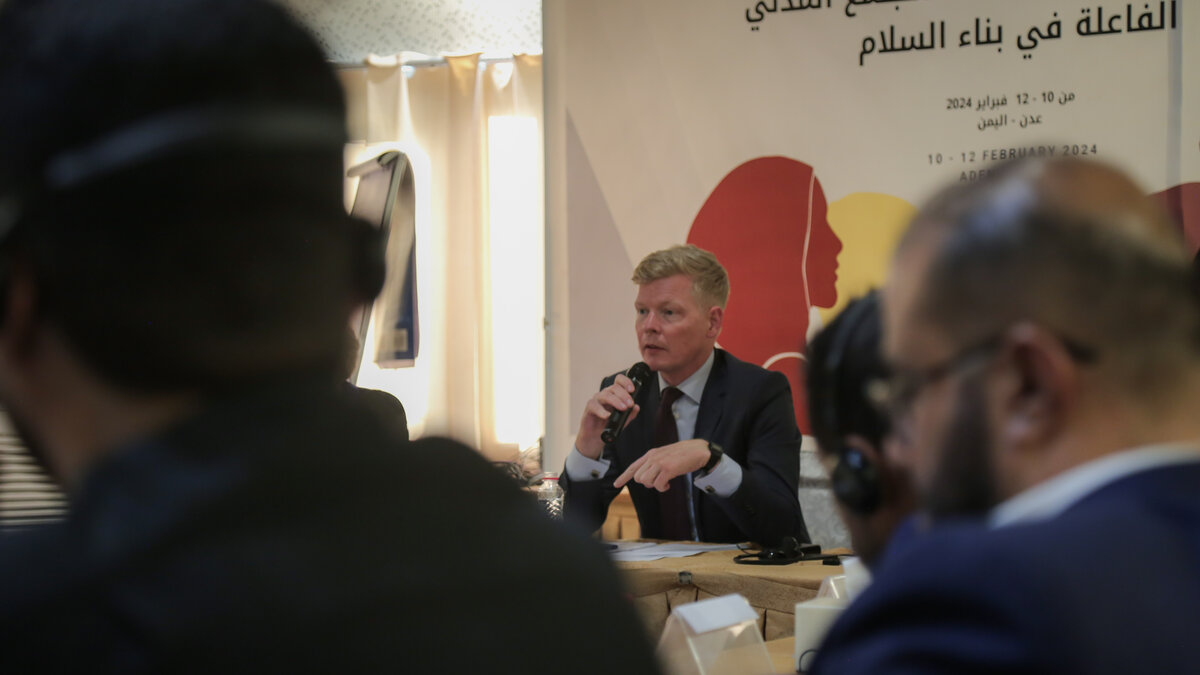
The participants repeatedly underscored that, for the political process to be genuinely 'Yemeni-owned,' it is imperative to recognize and listen to the voices of all segments of the Yemeni society, with particular attention to women, youth, and underrepresented groups and governorates.
OSESGY representatives engaged the participants during the meeting on ways to enhance the inclusivity of UN peace mediation towards just and sustainable outcomes and solutions. Some of the measures suggested by participants included establishment of regular virtual meetings to maintain active engagement between OSESGY and civil society to discuss the challenges facing UN mediation efforts, ensuring an active role for civil society organizations in supporting negotiations, and engaging marginalized groups in parallel discussions that contribute to the UN’s efforts with the parties to the conflict.
“Yemenis deserve a just and sustainable peace that transcends the interests of the parties to the conflict,” said one of the participants, “The political peace process should be dictated by the priorities and needs of Yemenis and geared to serve the collective interest of the country.”
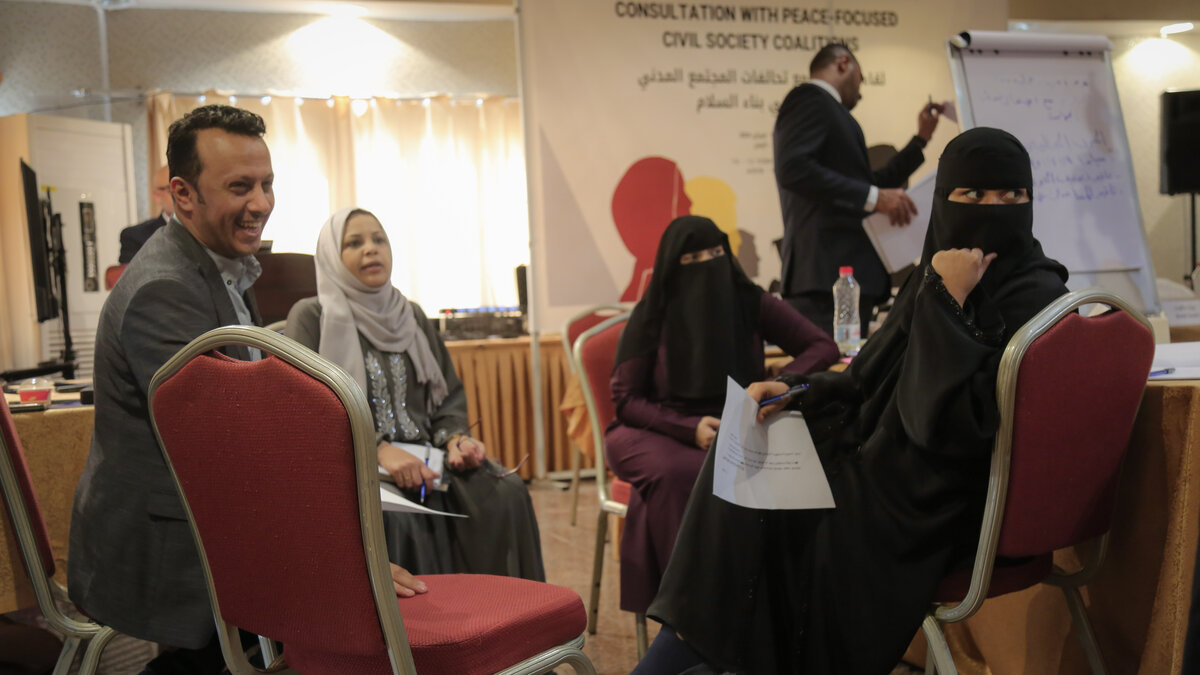
Representatives of the Civil Alliance for Peace and the Youth Support Group presented the visions and activities of their respective coalitions, and highlighted success stories in local peacebuilding initiatives in governorates around the country. Following a briefing by OSESGY, the participants engaged in working group discussions to brainstorm about potential scenarios and identify trust-building measures between the parties and priority issues for the peace process.
Drawing on their peacebuilding expertise rooted in the local context, participants sought to identify opportunities for strengthening complementarity between their grassroots efforts and the mediation efforts led by the UN, and providing practical approaches tailored to Yemen's unique circumstances. This included strengthening grassroot peace advocacy and facilitating local-level dialogues to ensure the process is grounded in the every-day reality facing Yemenis in all parts of the country.
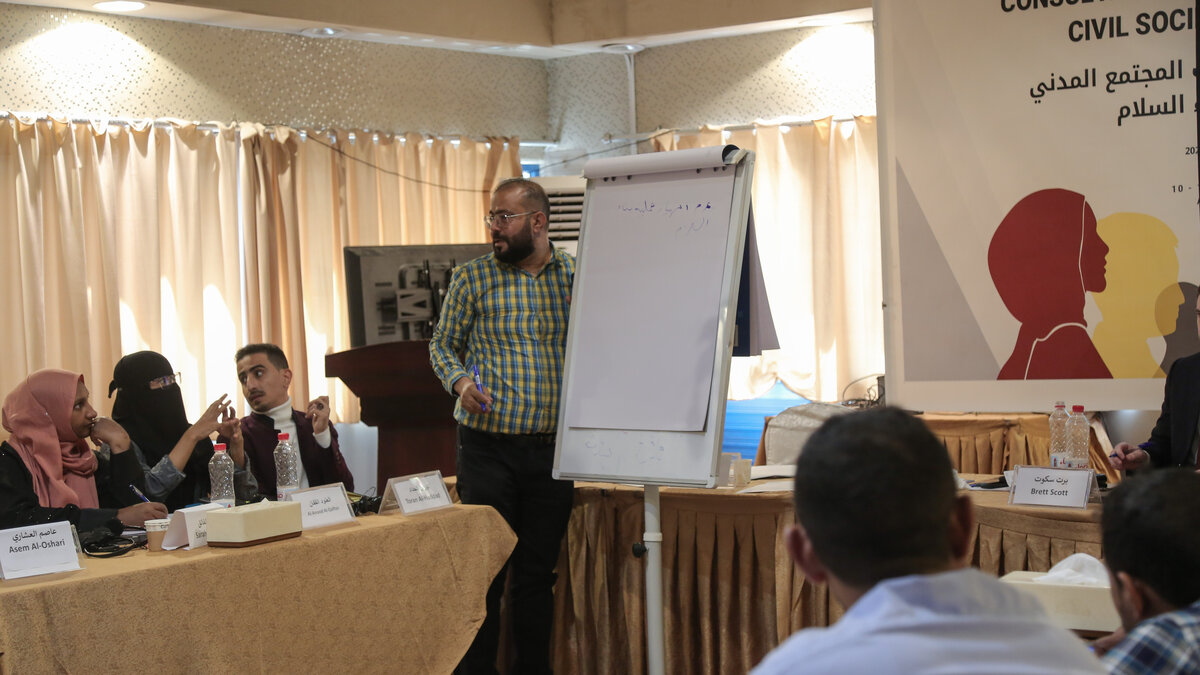
Common priorities emerged, and the participants advocated for these priorities to be integrated into future negotiation agendas to ensure solutions align with the needs of local communities. Short-term priorities included addressing the dire humanitarian conditions, prioritizing the payment of public sector salaries nationwide, and reopening roads in different parts of Yemen to facilitate freedom of movement of people and goods. Another priority that emerged from the deliberations of the working groups was addressing the Southern question, identified as a critical matter requiring political attention.
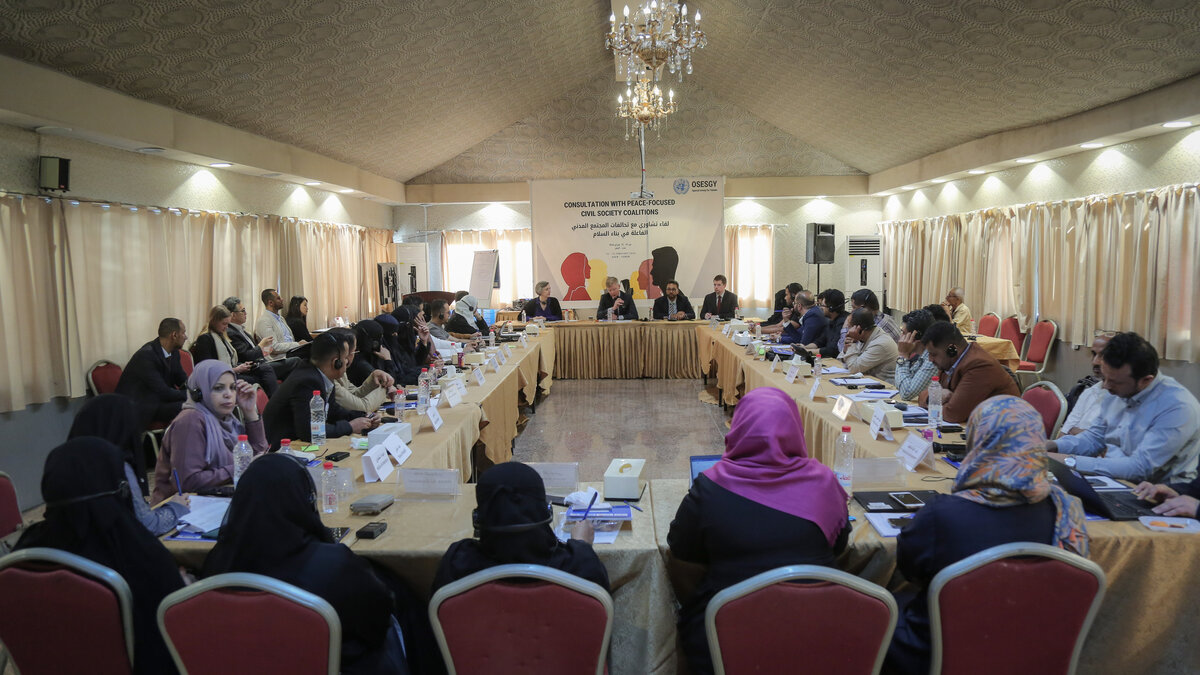
Coming from a diversity of backgrounds and governorates, the participants viewed this dialogue as an affirmation of the ability for civil society to find common ground on issues important to all Yemenis and to promote greater complementarity between UN mediation efforts and the work of Yemeni civil society.
“The consultation created an opportunity to exchange ideas and visions with people working on the ground in many governorates across Yemen. More importantly, this meeting renews hope for a peaceful political solution for Yemen” said a civil society leader from the Civil Alliance for Peace.
 UN
UN
